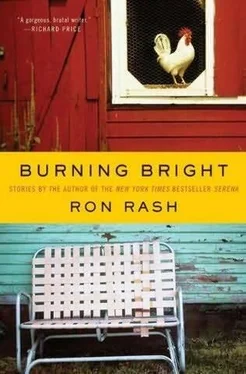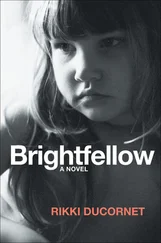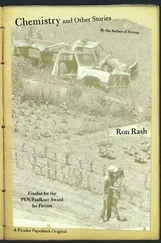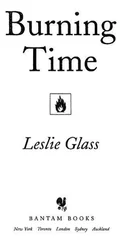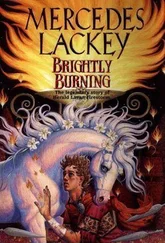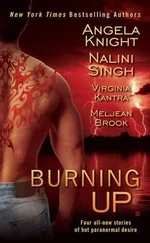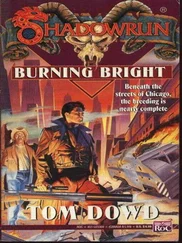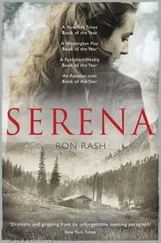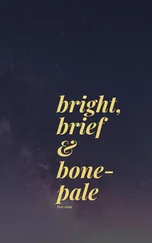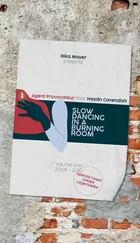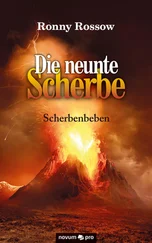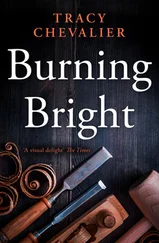“We got to get that hook out,” Jacob told her, but still she said nothing. Her eyes did not widen in fear and he wondered if maybe she was in shock. The barb was too deep to wiggle free. He’d have to push it the rest of the way through.
“This is going to hurt, but just for a second,” he said, and let his index finger and thumb grip the hook where it began to curve. He worked deeper into the skin, his thumb and finger slickened by blood and saliva. The child whimpered. Finally the barb broke through. He wiggled the shank out, the line coming last like thread completing a stitch.
“It’s out now,” he told her.
For a few moments Jacob did not get up. He thought about what to do next. He could carry her back to Hartley’s shack and explain what happened, but he remembered the dog. He looked at her cheek and there was no tear, only a tiny hole that bled little more than a briar scratch would. He studied the hook for signs of rust. There didn’t seem to be, so at least he didn’t have to worry about the girl getting lockjaw. But it could still get infected.
“Stay here,” Jacob said and went to the woodshed. He found the bottle of turpentine and returned. He took his handkerchief and soaked it, then opened the child’s mouth and dabbed the wound, did the same outside to the cheek.
“Okay,” Jacob said. He reached out his hands and placed them under her armpits. She was so light it was like lifting a rag doll. The child stood before him now, and for the first time he saw that her right hand held something. He picked up the lantern and saw it was an egg and that it was unbroken. Jacob nodded at the egg.
“You don’t ever take them home, do you,” he said. “You eat them here, right?”
The child nodded.
“Go ahead and eat it then,” Jacob said, “but you can’t come back anymore. If you do, your daddy will know about it. You understand?”
“Yes,” she whispered, the first word she’d spoken.
“Eat it, then.”
The girl raised the egg to her lips. A thin line of blood trickled down her chin as she opened her mouth. The shell crackled as her teeth bit down.
“Go home now,” he said when she’d swallowed the last bit of shell. “And don’t come back. I’m going to put another hook in them eggs and this time there won’t be no line on it. You’ll swallow that hook and it’ll tear your guts up.”
Jacob watched her walk up the skid trail until the dark enveloped her, then sat on the stump that served as a chopping block. He blew out the lantern and waited, though for what he could not say. After a while the moon and stars faded. In the east, darkness lightened to the color of indigo glass. The first outlines of the corn stalks and their leaves were visible now, reaching up from the ground like shabbily dressed arms.
Jacob picked up the lantern and turpentine and went to the shed, then on to the house. Edna was getting dressed as he came into the bedroom. Her back was to him.
“It was a snake,” he said.
Edna paused in her dressing and turned. Her hair was down and her face not yet hardened to face the day’s demands and he glimpsed the younger, softer woman she’d been twenty years ago when they’d married.
“You kill it?” she asked.
“Yes.”
Her lips tightened.
“I hope you didn’t just throw it out by the henhouse. I don’t want to smell that thing rotting when I’m gathering eggs.”
“I threw it across the road.”
He got in the bed. Edna’s form and warmth lingered on the feather mattress.
“I’ll get up in a few minutes,” he told her.
Jacob closed his eyes but did not sleep. Instead, he imagined towns where hungry men hung on boxcars looking for work that couldn’t be found, shacks where families lived who didn’t even have one swaybacked milk cow. He imagined cities where blood stained the sidewalks beneath buildings tall as ridges. He tried to imagine a place worse than where he was.
When Parson drove to his shop that morning, the sky was the color of lead. Flurries settled on the pickup’s windshield, lingered a moment before expiring. A heavy snow tonight, the weatherman warned, and it looked to be certain, everything getting quiet and still, waiting. Even more snow in the higher mountains, enough to make many roads impassable. It would be a profitable day, because Parson knew they’d come to his pawnshop to barter before emptying every cold-remedy shelf in town. They would hit Wal-Mart first because it was cheapest, then the Rexall, and finally the town’s three convenience stores, coming from every way-back cove and hollow in the county, because walls and windows couldn’t conceal the smell of meth.
Parson pulled his jeep into the parking lot of the cinder-block building with PARSON’S BUY AND SELL hung over the door. One of the addicts had brought an electric portable sign last week, had it in his truck bed with a trash can filled with red plastic letters to stick on it. The man told Parson the sign would ensure that potential customers noticed the pawnshop. You found me easy enough, Parson had replied. His watch said eight forty and the sign in the window said nine to six Tuesday through Saturday, but a gray decade-old Ford Escort had already nosed up to the building. The back windshield was damaged, cracks spreading outward like a spiderweb. The gas cap a stuffed rag. A woman sat in the driver’s seat. She could have been waiting ten minutes or ten hours.
Parson got out of his truck, unlocked the door, and cut off the alarm. He turned on the lights and walked around the counter, placed the loaded Smith & Wesson revolver on the shelf below the register. The copper bell above the sill tinkled.
The woman waited in the doorway, a wooden butter churn and dasher clutched in her arms. Parson had to hand it to them, they were getting more imaginative. Last week the electric sign and false teeth, the week before that four bicycle tires and a chiropractic table. Parson nodded for the woman to come on in. She set the churn and dasher on the table.
“It’s a antique,” the woman said. “I seen one like it on TV and the fellow said it was worth a hundred dollars.”
When the woman spoke Parson glimpsed the stubbed brown ruin inside her mouth. He could see her face clearly now, sunken cheeks and eyes, skin pale and furrowed. He saw where the bones, impatient, poked at her cheeks and chin. The eyes glossy but alive, restless and needful.
“You better find that fellow then,” Parson said. “A fool like that don’t come around often.”
“It was my great-grandma’s,” the woman said, nodding at the churn, “so it’s near seventy-five years old.” She paused. “I guess I could take fifty for it.”
Parson looked the churn over, lifted the dasher and inspected it as well. An antiques dealer in Asheville might give him a hundred.
“Twenty dollars,” Parson said.
“That man on TV said…”
“You told me,” Parson interrupted. “Twenty dollars is what I’ll pay.”
The woman looked at the churn a few moments, then back at Parson.
“Okay,” she said.
She took the cash and stuffed the bills in her jeans. She did not leave.
“What?” Parson asked.
The woman hesitated, then raised her hands and took off her high school ring. She handed it to him, and Parson inspected it. “Class of 2000,” the ring said.
“Ten,” he said, laying the ring on her side of the glass counter.
She didn’t try to barter this time but instead slid the ring across the glass as if it were a piece in a board game. She held her fingers on the metal a few moments before letting go and holding out her palm.
By noon he’d had twenty customers and almost all were meth addicts. Parson didn’t need to look at them to know. The odor of it came in the door with them, in their hair, their clothes, a sour ammonia smell like cat piss. Snow fell steady now and his business began slacking off, even the manic needs of the addicted deferring to the weather. Parson was finishing his lunch in the back room when the bell sounded again. He came out and found Sheriff Hawkins waiting at the counter.
Читать дальше
